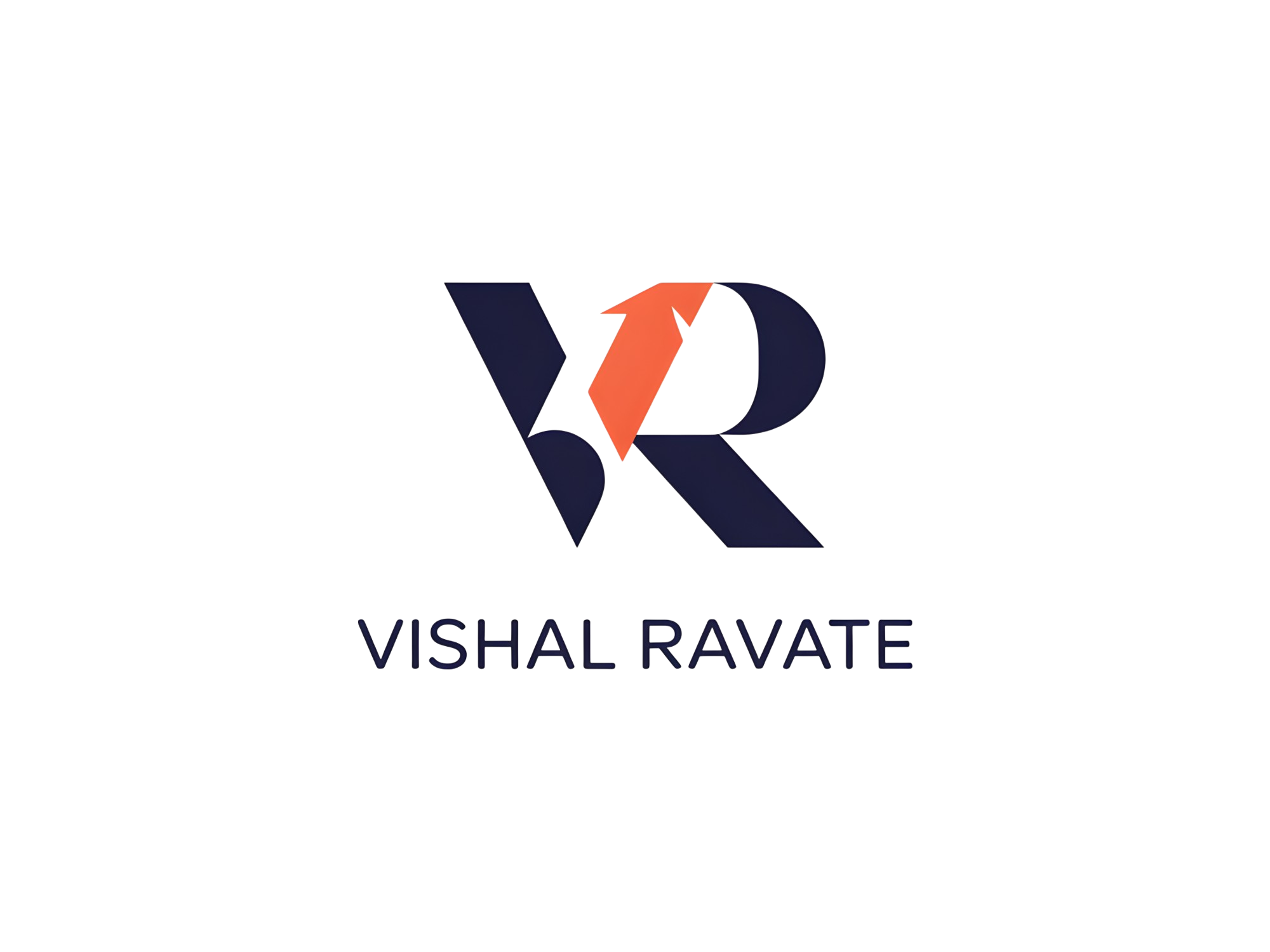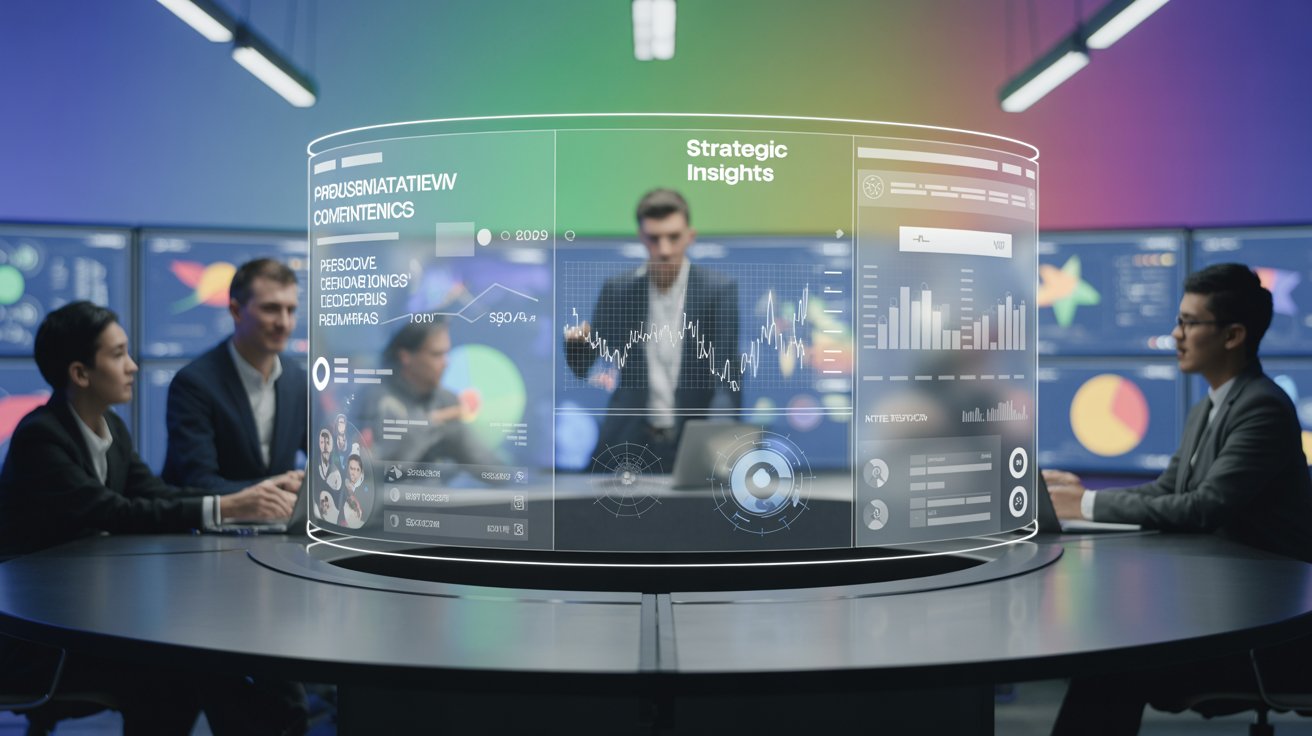Is AI the Marketing Jugaad We’ve All Been Waiting For?
You know what, yaar? Every marketing guru these days is shouting—“AI will change everything!”
But sach bataun? Most people don’t even know how to use AI properly, especially when it comes to personalized marketing. Is AI really the magic wand that can help us connect better with our customers? Or is it just another shiny buzzword like blockchain and metaverse that makes us feel FOMO?
Back in 2020, I was running Facebook ads for a client selling custom T-shirts online. We tried everything — interest targeting, lookalikes, retargeting. But results? Very average. Then one day, we tested AI-powered personalization tools. Within weeks, our ad CTR went up by 30%, and the ROAS almost doubled.
That’s when I realized — AI personalization works, but only when you do it right.
In this article, I’ll break down exactly how AI in personalized marketing works, backed with real data, case studies, tools, and ethical insights. Bas yeh samajh lo: by the end, you’ll know how to implement it and where to start.
Understanding AI in Personalized Marketing
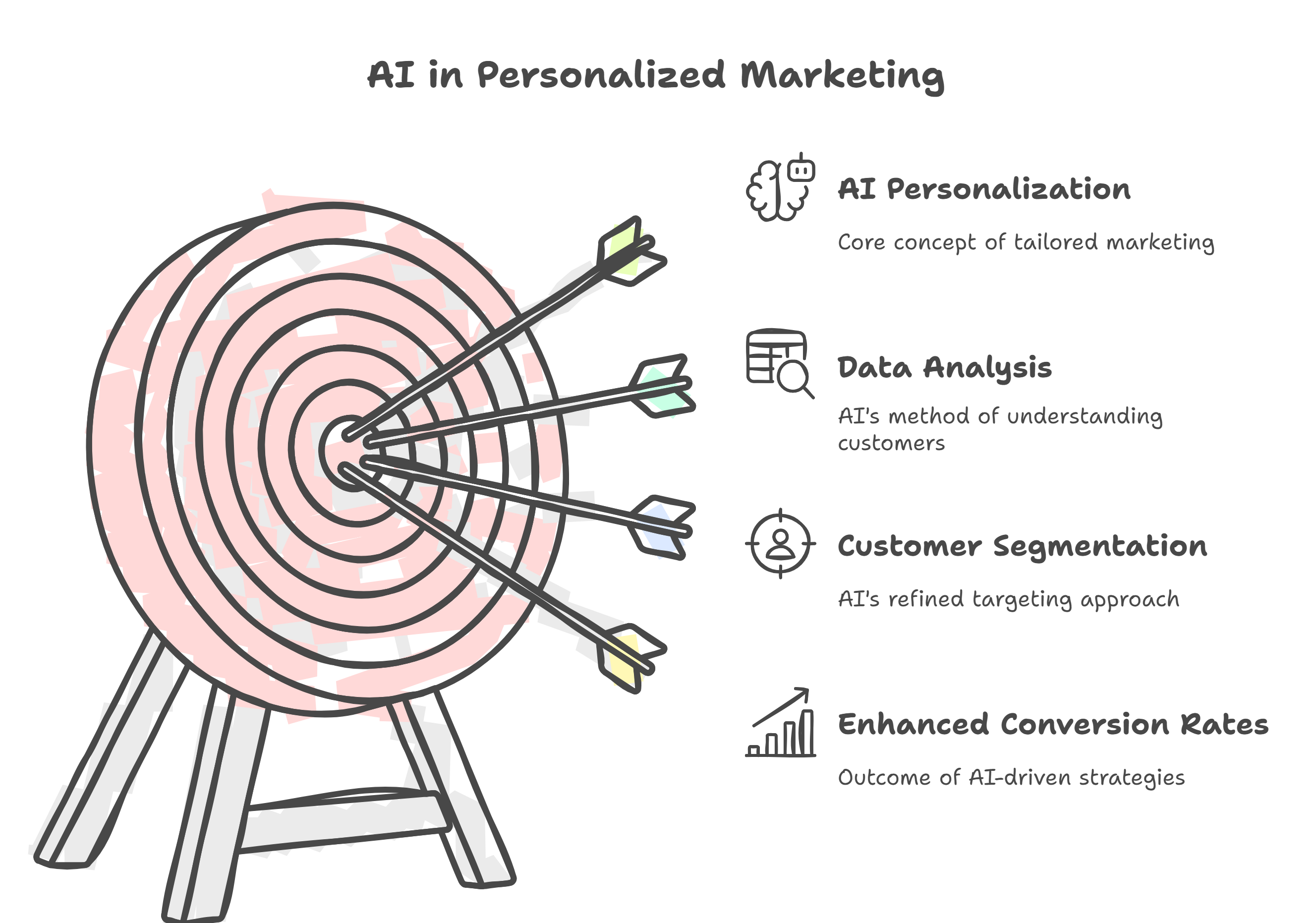
First, let’s cut the jargon. What does AI personalized marketing even mean?
In simple terms:
AI uses customer data to deliver the right message to the right person at the right time.
Instead of guessing what your customer wants, AI studies:
- Browsing history
- Purchase behavior
- Demographics
- Time of day
- Device type
- Even mood signals (yes, mood!)
Then it creates hyper-personalized content, offers, and experiences that feel tailor-made.
For example:
- Netflix recommending shows based on your recent binge.
- Amazon showing you “customers also bought” suggestions.
- Spotify curating your “Discover Weekly” playlist.
Behind all this? AI algorithms working quietly, analyzing millions of data points.
How AI Enhances Customer Segmentation
Old-school marketing segmentation was simple: age, gender, location.
But AI? Pure genius.
AI uses predictive analytics to create micro-segments:
- Shoppers who buy only during discounts
- Customers likely to churn next month
- Users who respond to SMS more than email
According to McKinsey, companies using AI-driven segmentation see 10-20% better conversion rates than those using traditional methods.
Benefits of AI-Driven Personalization
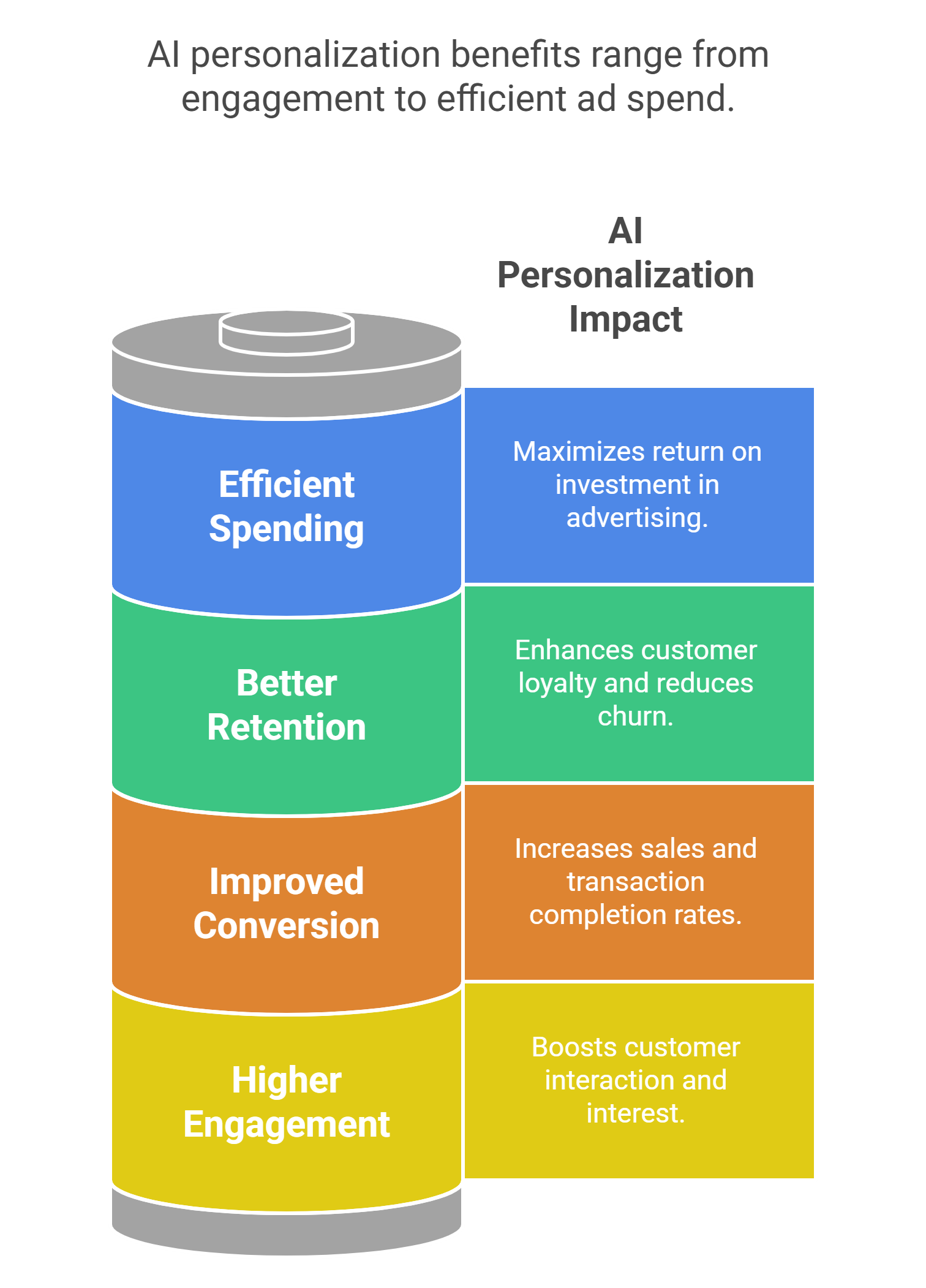
Now let’s talk paisa vasool. Why should you care?
1. Higher Engagement Rates
According to Think with Google, 90% of leading marketers say personalization significantly contributes to business profitability.
When customers feel understood, they engage more:
- Higher email open rates
- Better ad CTR
- Longer session durations on websites
2. Improved Conversion & Sales
Brands using AI personalization report 20–30% lift in conversions, as per Harvard Business Review.
Example:
Victoria’s Secret implemented AI-powered email personalization and saw:
- 15% increase in click-through rates
- Boost in revenue within 3 months
3. Better Customer Retention
When customers get relevant offers, they stick around. AI helps:
- Recommend subscription upgrades
- Trigger loyalty programs at the right time
- Identify at-risk customers before they leave
4. Efficient Use of Ad Spend
AI minimizes waste by:
- Predicting which customer will buy
- Optimizing ad frequency
- Avoiding irrelevant audiences
According to Deloitte, businesses applying AI see up to 40% better ROAS compared to traditional targeting.
Challenges and Ethical Considerations
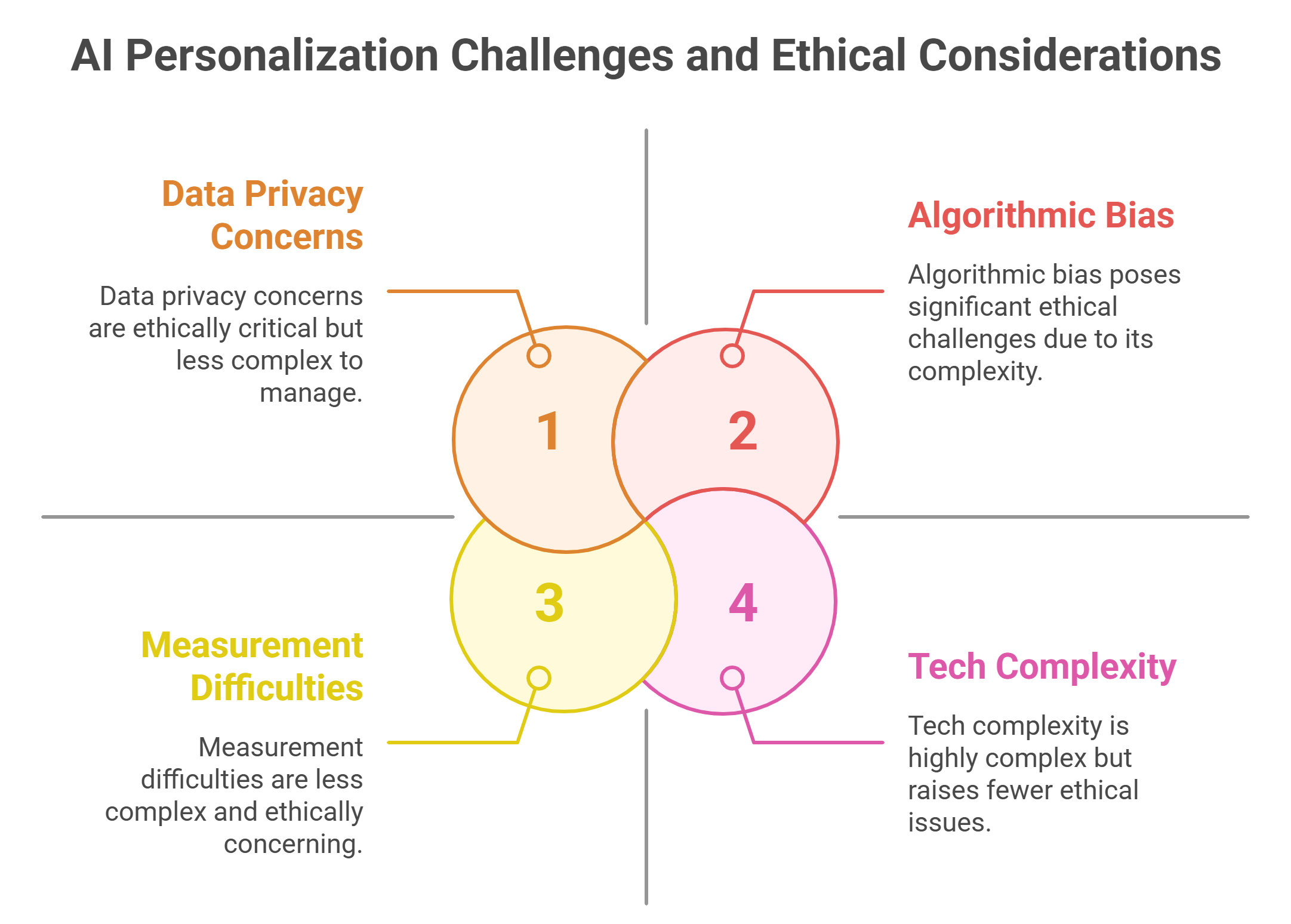
Ab har coin ke do side hote hai, yaar.
While AI personalization is powerful, it brings some serious challenges.
1. Data Privacy Concerns
With stricter regulations like GDPR and India’s upcoming DPDP Act, companies must handle data carefully.
Customers today are more aware. A Pew Research study shows 79% of consumers worry about how companies use their data.
2. Algorithmic Bias
If your AI learns from biased data, it may:
- Discriminate against certain groups
- Exclude valuable segments unintentionally
Ethical AI usage requires constant auditing and diverse training data.
3. Tech Complexity
Implementing AI personalization needs:
- Clean, well-organized customer data
- Skilled data scientists
- Ongoing model training
Most small businesses struggle here.
4. Measurement Difficulties
Attributing revenue directly to AI personalization isn’t always straightforward.
Bloomreach reports that 42% of marketers struggle to measure AI’s exact ROI.
Case Studies: Real-World Applications
Let’s see how brands are actually using AI personalization.
Case Study 1: Victoria’s Secret
Challenge: Low engagement in email marketing
Strategy: Implemented AI-powered subject line optimization, dynamic offers, and send-time personalization
Result:
- 15% higher CTR
- 20% increase in email-driven revenue
Case Study 2: Swarovski
Challenge: Online shoppers struggling to find products
Strategy: Used AI-powered search recommendations and chatbots
Result:
- Improved product discovery
- Significant boost in conversion and customer satisfaction
Case Study 3: Caleres (Footwear Brand)
Challenge: Stagnant online sales
Strategy: Integrated AI-powered product search and personalized product suggestions
Result:
- 23% increase in conversion rates within 6 months
Future Trends in AI Personalization
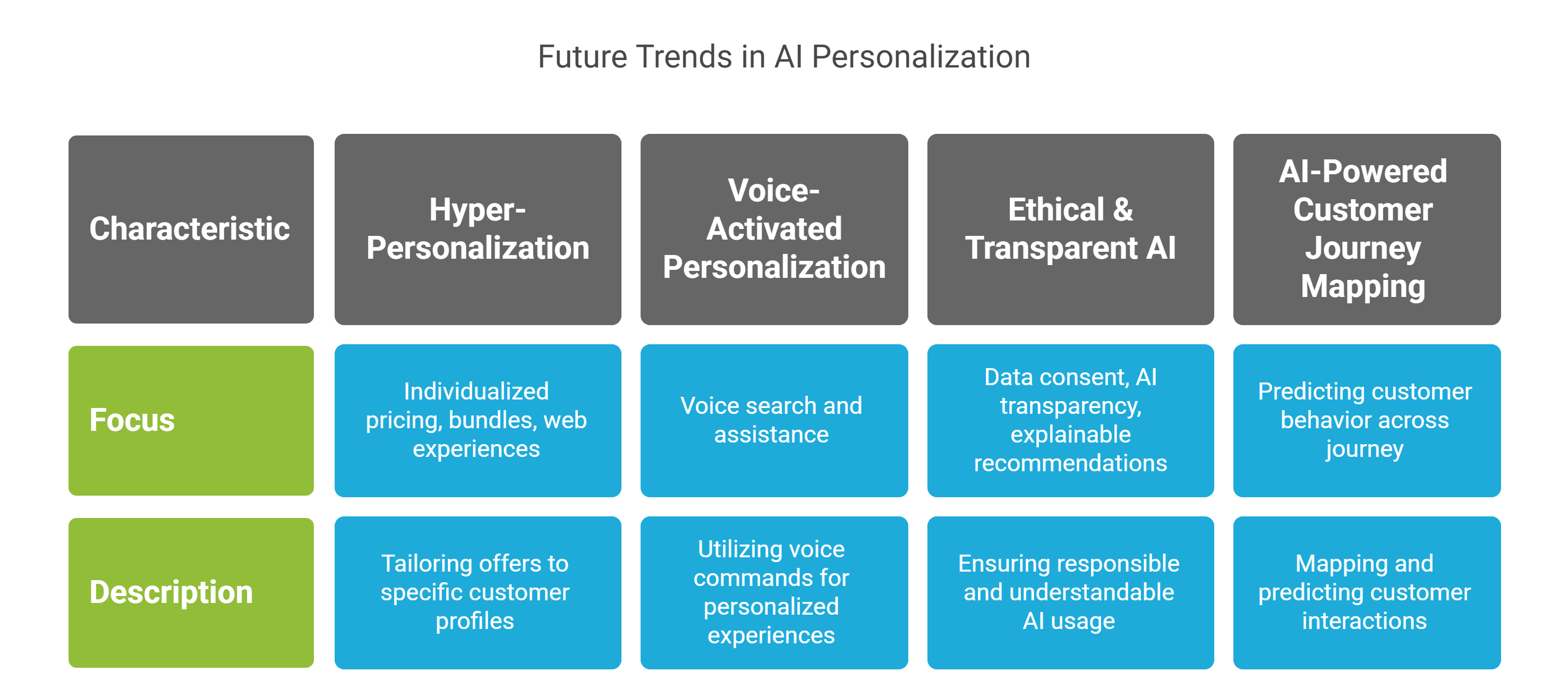
Where is all this headed, doston? Let’s peek into the future.
1. Hyper-Personalization
AI will soon personalize:
- Pricing (dynamic pricing)
- Product bundles based on individual buying patterns
- Real-time web experiences customized per visitor
2. Voice-Activated Personalization
With Alexa, Google Assistant, and Siri improving daily, voice-first personalization will rise dramatically.
TechRadar predicts 30% of all searches may happen via voice by 2025.
3. Ethical & Transparent AI
Future personalization will focus on:
- Clear data consent
- Transparent AI decisions
- Explainable recommendations
4. AI-Powered Customer Journey Mapping
AI will map entire customer journeys, predicting:
- When a customer will buy
- What channel they prefer
- Which message works best at each stage
This makes full-funnel personalization achievable.
FAQs
What is AI personalization in marketing?
AI personalization uses algorithms to analyze customer data and deliver tailored marketing messages, offers, and experiences automatically.
How does AI improve customer engagement?
AI predicts customer preferences and behaviors, ensuring content, ads, and offers feel personally relevant—leading to higher engagement.
What are the risks of AI in personalized marketing?
Key risks include data privacy violations, algorithmic bias, over-reliance on automation, and regulatory non-compliance.
Which industries benefit most from AI personalization?
E-commerce, finance, healthcare, education, and media companies are seeing the biggest gains from AI-powered personalization.
How to start implementing AI personalization strategies?
Begin by cleaning your customer data, choose AI tools that fit your budget, run pilot campaigns, and measure results closely.
Conclusion: Ready to Make Your Marketing Paisa Vasool?
So, yaar — is AI the ultimate marketing jugaad?
If done right — YES.
AI personalization isn’t some future fantasy. It’s already helping brands engage better, sell smarter, and build loyal customers.
But like any powerful tool — it demands responsibility, ethics, and ongoing learning. Start small, test often, and always keep your customers’ trust at the center.
Agar aapko lagta hai ki ab time aa gaya hai apne marketing ko next level le jaane ka — AI personalization is your shortcut.
